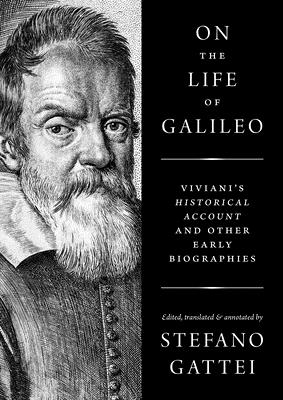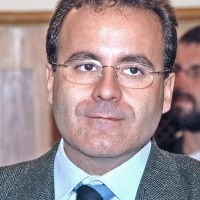

 Princeton University Press
Princeton University Press
On the Life of Galileo: Viviani's Historical Account and Other Early Biographies


Key Metrics
- Stefano Gattei
- Princeton University Press
- Hardcover
- 9780691174891
- 10.1 X 7.1 X 1.7 inches
- 2.4 pounds
- Science > History
- English
 Secure Transaction
Secure TransactionBook Description
The first collection and translation into English of the earliest biographical accounts of Galileo's life
This unique critical edition presents key early biographical accounts of the life and work of Galileo Galilei (1564-1642), written by his close contemporaries. Collected and translated into English for the first time and supplemented by an introduction and incisive annotations by Stefano Gattei, these documents paint an incomparable firsthand picture of Galileo and offer rare insights into the construction of his public image and the complex intertwining of science, religion, and politics in seventeenth-century Italy.
Here in its entirety is Vincenzo Viviani's Historical Account, an extensive and influential biography of Galileo written in 1654 by his last and most devoted pupil. Viviani's text is accompanied by his Letter to Prince Leopoldo de' Medici on the Application of Pendulum to Clocks (1659), his 1674 description of Galileo's later works, and the long inscriptions on the fa�ade of Viviani's Florentine palace (1702). The collection also includes the Adulatio perniciosa, a Latin poem written in 1620 by Cardinal Maffeo Barberini--who, as Pope Urban VIII, would become Galileo's prosecutor--as well as descriptive accounts that emerged from the Roman court and contemporary European biographers.
Featuring the original texts in Italian, Latin, and French with their English translations on facing pages, this invaluable book shows how Galileo's pupils, friends, and critics shaped the Galileo myth for centuries to come, and brings together in one volume the primary sources needed to understand the legendary scientist in his time.
Author Bio
tefano Gattei (1970) graduated in philosophy, summa cum laude, at the University of Milan in 2003, and was awarded a Ph.D. in the philosophy of science at the University of Bristol in 2004. Back to Italy, he received a bursary from the University of Padua and was post-doctoral fellow at the University of Pisa (2005-2008).
He has lectured widely both in Italy and abroad, and taught philosophy and history of science in Milan, Pisa and Vercelli, where he was temporary lecturer in 2005-2006. His main research areas comprise: philosophy of science in the twentieth century, methodology, the philosophy of Karl R. Popper and critical rationalism, Thomas S. Kuhn (with special reference to Wittgenstein and Logical Positivism), William Whewell, the dynamics of theory-change and conceptual-change, incommensurability, the theory of rationality; history of science, Johannes Kepler, history of astronomy and cosmology, history and philosophy of mathematics.
He authored a few books, as well as several articles and book contributions. His most recent publications include La rivoluzione incompiuta di Thomas Kuhn, Turin: UTET, 2007; Introduzione a Popper, Rome-Bari: Laterza 2008; and the forthcoming Thomas S. Kuhn’s ‘Linguistic Turn’ and the Legacy of Logical Positivism (Aldershot: Ashgate) and Rationality without Foundations (London-New York: Routledge). He has also edited Thomas S. Kuhn, Dogma contro critica: Mondi possibili nella storia della scienza, Milan: Raffaello Cortina, 2000; Ripensando il razionalismo critico, special double issue of Nuova Civiltà delle Macchine, XX, 1-2, 2002; and The Kuhn Controversy, special double issue of Social Epistemology, 17, 2-3, 2003.
He is currently working on a Reader’s Guide to Popper’s Logic of Scientific Discovery (to be published by Continuum Press, New York), as well as on a collection of Feyerabend’s papers in the philosophy of physics (Physics and Philosophy, under contract with Cambridge University Press, New York). He is also completing the critical edition and translation of Johannes Kepler, Strena seu De nive sexangula (1611). His research project at the Italian Academy further develops this research on Kepler, especially focusing on his mathematical works and methodology.
Source: Columbia University - Italian Academy
Videos






Community reviews
Write a ReviewNo Community reviews